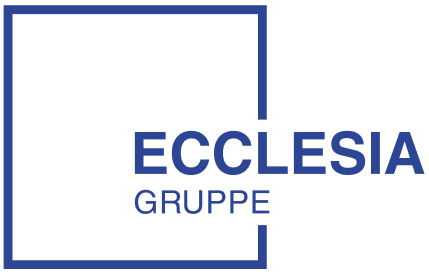
Healthcare claims - complex, expensive and emotionally stressful
In 2023 alone, 12,438 suspected cases of medical errors were reported to the Medical Service (MD) nationwide. An error was confirmed in 3,595 cases and a causal link between error and harm was established in over 2,600 cases. Even if the absolute number appears to be slightly lower than in previous years, the number of unreported cases remains high. Compensation payments per case are also increasing: they average over 30,000 euros - with significantly higher sums in particularly serious cases. Rising life expectancy, advances in medical technology, higher care costs and increasing legal requirements continue to drive up overall costs.
What makes medical malpractice claims special
Healthcare claims are not only expensive - they are also difficult to predict. In the year of occurrence, less than 40 per cent of the expected claims are known. Even five years later, there are still considerable uncertainties. Late effects, inadequately estimated reserves and randomly driven major claims characterise the picture. What's more, every medical claim also has an emotional component. Those affected not only experience physical pain, but often also a loss of trust in the healthcare system, which can result in mistrust, anxiety or depression. It is precisely this emotional depth that makes settlement complex - and requires sensitivity, medical expertise and legal clarity.
Why professional claims management is crucial
Professional claims management is not an end in itself. It is an expression of responsibility - towards the patient, the medical staff and the organisation responsible for the facility. The aim is to harmonise the interests of all parties involved with a sense of proportion and expertise - regardless of whether the damage is minor or major. Because every detail counts, especially in the sensitive environment of the healthcare sector.
We, the Ecclesia Group, support our customers with a specialised claims service that combines medical knowledge with legal expertise and communicative experience. From the initial claims notification to the medical assessment to the final settlement, we support our clients - analytically, solution-orientated and in close coordination with you as the policyholder. We also provide structured and efficient support for complex claims scenarios, such as major personal injury claims, long-term claims or difficult constellations in terms of liability law.
At the same time, claims management is also a learning process for us. Every single claim provides valuable information: about systemic weaknesses, about typical sources of error, about processes and results. These findings are systematically incorporated into our analysis and control processes - be it in the form of claims statistics, analyses, lessons learned or the targeted derivation of preventive measures. This turns claims management into active risk control. Not with a backward-looking approach, but with a clear view to the future. Because only those who are prepared to learn from the past can act better in the future.
Claims management provides impetus for the future
Analysing complex claims histories shows where existing insurance products reach their limits - for example, in the case of long-term histories, late manifestations or new types of liability issues. We use these findings to refine existing solutions and develop new insurance products or cover concepts. This results in innovative approaches that are better suited to the real challenges in the healthcare sector - be it in the form of dynamic retention models, parametric cover or modular risk modules.
Transparency is a central principle here: our customers always have an overview of the processing status, communication with claimants and the financial impact. Regular reporting, forward-looking reserve planning and legal assessments ensure well-founded claims management - today and with a view to tomorrow.
From damage to prevention - focus on prevention
Every damage avoided is a gain. For the patient. For the staff. For the organisation. But prevention in the healthcare sector means more than just complying with hygiene standards or implementing legal requirements. It's about practising risk awareness - understanding critical processes, potential sources of error and structural weaknesses.
This is where our company for clinical risk consulting (GRB) comes in: As an independent consulting unit within the Group, it supports hospitals, care facilities and medical care centres in identifying risks at an early stage, analysing them and minimising them in a targeted manner.
Our consultants have many years of experience in everyday medical practice and know the challenges on site. Together with you, they develop customised concepts for process safety - for example through targeted risk analyses, structured case discussions, training or the introduction of clinical risk management.
The aim is to systematically build up risk expertise in your organisation. So that errors are not just seen as individual failures, but as learning opportunities in the sense of a constructive safety culture. And so that the quality of care increases - sustainably, verifiably and with real added value for everyone involved.
Our aim is to manage damage before it occurs - and to provide professional support once it has occurred. At the same time, we think ahead: with a clear eye for innovation, with the courage to find new solutions - and with a deep understanding of the reality in the healthcare sector.
Interview
Why medical facilities need specialised support in the event of a claim
In this interview, experienced experts Yasmin Berkemeier, Natalie Schäfer and Dr Markus Krüger from the Ecclesia Group explain how professional claims management works, what the typical pitfalls are - and why speed, empathy and expertise are crucial in such cases.
Why do medical claims pose a particular challenge for medical facilities?
Markus Krüger: Because they are not only legally and financially complex, but also emotionally highly sensitive. They affect the central relationship of trust between the facility and the patient. The resulting liability claims can have a considerable impact - both economically and reputationally.
What constitutes good claims management in this area?
Natalie Schäfer: It has to be fast, professional and empathetic. The aim is not only to examine the factual and legal situation with legal certainty and respond to the patient, but also to protect the organisation's reputation. Those who act in a structured and forward-looking manner can avoid escalations, maintain trust and gain preventative insights.
Are there typical mistakes that insured persons make in the event of a claim?
Yasmin Berkemeier : In some cases, promises of settlement are made - possibly also out of a need to resolve the matter quickly on the spot. However, employees of medical facilities should always avoid promising payment or even accepting liability without consulting us. It also happens from time to time that statements are issued to the other party or medical association without our involvement. This should also be avoided at all costs and we should be contacted instead. On the other hand, speed is of the essence when it comes to court notifications, which should be sent to us immediately.
Can you give us a specific example from your brokerage practice in which a medical claim was settled? What was the process like?
Natalie Schäfer:A hospital reported that a mistake had been made during an operation and a swab had accidentally remained in the patient's body; a follow-up operation now had to be performed. From a legal perspective, this was a serious incident that had caused damage to the patient. As the patient was still on site and we took care of the case as part of our own handling, it was possible to settle the claim immediately. Thanks to good co-operation with the hospital, the patient received a payment - virtually at the bedside - and the case was settled within a short time to the satisfaction of both the patient and the hospital.
Which cases are particularly common as claims?
Yasmin Berkemeier:There is no generalised answer to this, as ultimately the whole range of errors is possible and we offer support in all situations. People work in medical facilities and, despite the greatest possible care, commitment and control, errors are naturally always possible. This ranges from very rare events to incidents that should not or must not happen as so-called "never events". These include, for example, interventions in the wrong part of the body or incorrect administration routes for medicines.
What challenges do you see in claims handling - both for the customer and for you as a broker?
Markus Krüger: Good claims settlement always requires the co-operation of the patient. In the past, all that was recognisable was an increased sense of entitlement. However, we are now also seeing a tendency for patients to take a more resolute approach and resort to means such as accusing or denouncing the hospital or specific doctors to various institutions or making publications on social networks. This not only leaves the level of objectivity of a claims settlement, but such processes are also difficult to handle, as there is no recognisable significant willingness on the part of the patient to find a solution. From the customer's point of view, it is often necessary to defend oneself against generalised claims. In addition to medical and legal expertise, communication and negotiation skills as well as speed are particularly important here.
How do you specifically support your customers in the event of a claim?
Natalie Schäfer: The Ecclesia Group supports its customers with a specialised claims service that combines medical knowledge with legal expertise and communication experience. From the initial claims notification to the medical assessment and the final liability decision, we support our customers - analytically, solution-orientated and in close coordination with you as the policyholder. We also provide structured and efficient support for complex claims scenarios, for example in the case of major personal injury claims, long-term claims or difficult constellations in terms of liability law.
You rely on an interdisciplinary network. Why is that so important?
Yasmin Berkemeier : Healthcare claims can only be resolved together. We work closely with doctors, lawyers, rehabilitation experts and other specialists to analyse the claim holistically and ensure the best possible care. The network creates speed, quality and reliability.
In your opinion, how important is personal support for such sensitive risks?
Markus Krüger: This is a very important aspect, as it's not just about human destinies, but in the end it's the person who suffers.
